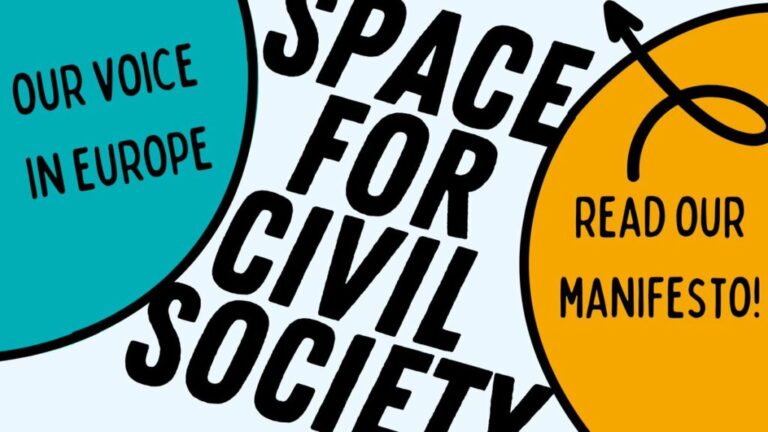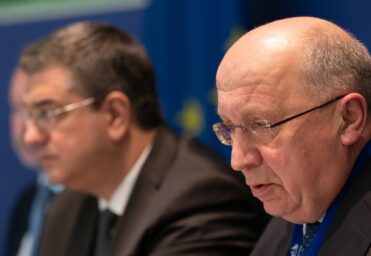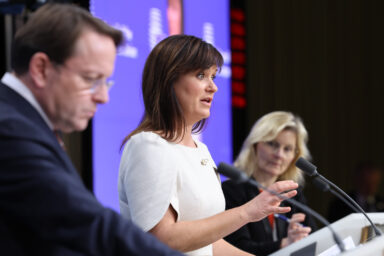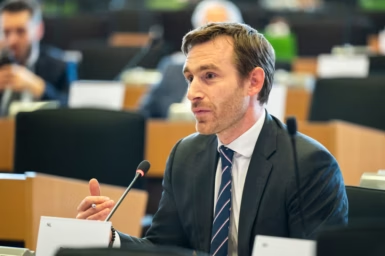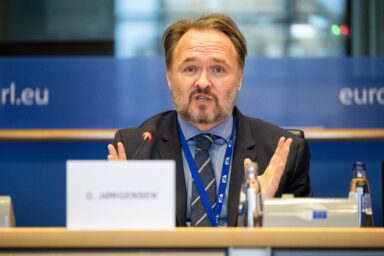For the first time, the European Commission has included a Civil Society Strategy in its 2025 work program. The decision, supported by the European Parliament and several national governments, comes after years of pressure from civil society organizations. In many member states the civic space is shrinking.
For Gabriella Civico, President of Civil Society Europe who spoke to EU Perspectives after the debate attended in the European Parliament recently, this represents a crucial milestone: “The Civil Society Strategy is about better equipping those actors who, everyday, respond to people’s needs in multiple ways… Beyond that, it is not just about protecting civil society organisations—it is about protecting democracy itself,” Ms Civico said.
According to Ms Civico, in recent years, many organizations have denounced an increasingly hostile environment for civil society. From restrictive laws introduced in certain countries to the stigmatization of NGOs defending the rights of migrants, women, or LGBTIQ communities, the space available for Civil Society Organisations has become more fragile. The strategy thus emerges as a response to a dual necessity: protecting organizations while at the same time strengthening the EU’s democratic resilience through three pillars—support, protection, and engagement.
Three main axes
The Commission’s document, as reported, should be built on three main axes. First, Support and enabling environment—adequate resources in the next EU Multiannual Financial Framework, streamlined procedures, and explicit recognition of advocacy as a legitimate activity. Central to this is also the adoption of the Cross-Border Associations Directive, approved by the European Parliament in 2024 but still pending in the Council.
Second, Protection—a European monitoring and alert mechanism on restrictions to civic space, with a dedicated chapter in the Rule of Law Report. Binding guidelines against democratic backsliding and a protection mechanism for human rights defenders are among the key requests.
You might be interested
Finally, Engagement—a binding interinstitutional agreement on civil dialogue, ensuring regular involvement of organizations in decision-making processes. “We call for a binding inter-institutional agreement on civil dialogue, formalising structured regular engagement with civil society in EU policy-making,” Ms Civico explains.
The political challenge
The strategy’s success will not depend only on its technical content but above all on political support. “The Strategy’s success will depend on its legal enforceability, on adequate resourcing in the next Multiannual Financial Framework, and most importantly on strong political backing,” stresses Gabriella Civico.
The Strategy’s success will depend on its legal enforceability, and most importantly on strong political backing. — Gabriella Civico, President of Civil Society Europe
However, the recent rightward shift in the European Parliament and the growing influence of conservative and far-right forces make dialogue more difficult. Already, some groups have pushed for initiatives to scrutinize NGO funding, presented as transparency measures but denounced as attempts at delegitimization.
Not coincidentally, in its most recent report, Human Rights Watch (HRW) highlighted additional risks. Some new EU directives, though intended to regulate emerging issues (such as foreign funding and transparency), could have a ’chilling effect’ on freedom of association, expression, and assembly if applied without safeguards. HRW also reported a growing use of spyware against journalists and human rights defenders.
Looking beyond Europe: the failure of USAID
The European debate, however, risks becoming isolated. In the United States, for example, civil society has long benefited from USAID’s Civil Society Strengthening Program, which has provided financial and technical support to local organizations even in contexts of democratic crisis. Yet, this support began to falter after announcements from the Trump administration, already producing disastrous consequences.
For the EU, Ms Civico argues, the lesson is clear. Without legal guarantees and stable resources, the risk is that measures remain only on paper. Hence the importance, also for Europe, of ensuring consistency between declared principles and concrete policies.
In conclusion, the Civil Society Strategy is therefore being played out on multiple fronts: technical, financial, and above all political. On the one hand, organizations are calling for concrete tools and safeguards against abuses; on the other, the political climate may shape the real impact of the reform.
Yet one point remains undisputed, shared by stakeholders and institutions alike: without a free, recognized, and supported civil society, European democracy risks losing one of its fundamental pillars. As Gabriella Civico concludes: “It is not just about protecting civil society organisations—it is about protecting democracy itself.”
